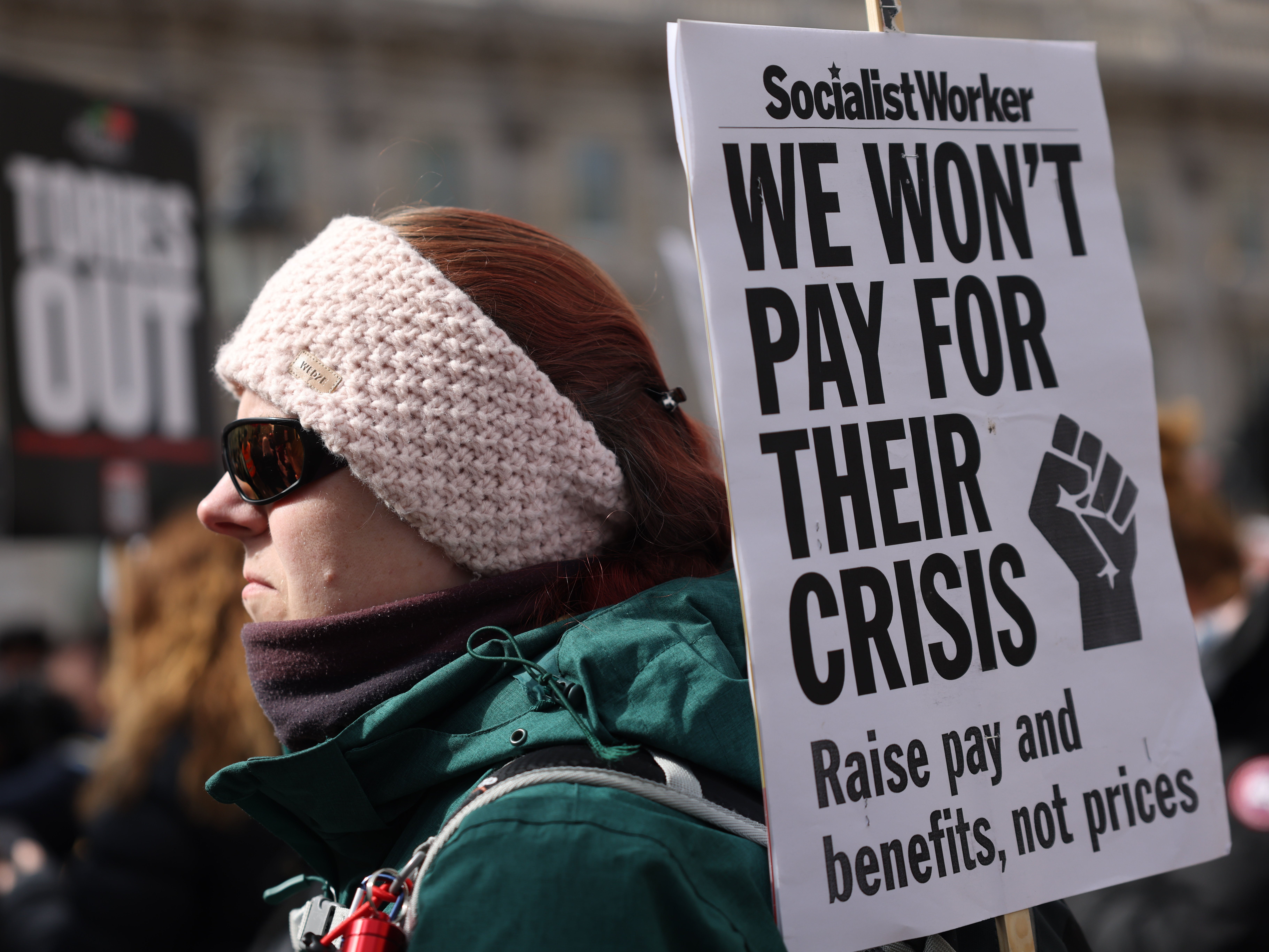The government cannot protect everyone from every price rise but it must do more to help those in need
Editorial: Now that the cap on most energy bills has actually been lifted, people face real hardship

People have taken to the streets to protest against energy price rises around the UK this weekend. This is not normal. The only time during Tony Blair’s first two terms as prime minister that Labour lost its lead in the opinion polls was in 2000, when lorry drivers disrupted fuel supplies in protest against the rising price of petrol and diesel. As a result, the government abandoned the gradual increase in fuel taxes that had been planned, partly as a green measure.
Now the situation is more serious, in that the rise in the price of natural gas in particular is driving up domestic energy bills for gas and electricity in a way that is going to cause serious hardship. Consumers had been protected until now from the five-fold increase in the world price of natural gas since a year ago, mostly caused by faster than expected economic growth as countries emerged from lockdowns. Last week the price cap on most UK domestic bills was raised by the regulator, and now the pain will be felt.
The government is paralysed. The prime minister promised an energy strategy in the next few days, rather more than a few days ago. It may be published this week, or it may not, according to government sources – who plainly have no idea themselves. When it comes, the document will contain familiar ideas for increasing the supply of gas from the North Sea and of electricity from offshore wind, as well as plans to insulate homes and build “mini” nuclear power stations.
The prime minister seemed to think that the latter could be built in less than eight years if we put our minds to it, when he gave evidence to select committee chairs on Thursday. And he played down the prospects of more onshore wind turbines, knowing full well that the nimby tendency in his own party will not allow them, only for the weekend newspapers to report plans to “triple” onshore wind generation. Possibly to suggest that he is trying.
None of which, of course, deals with the hardship suffered by people who cannot afford to keep their families warm and fed now, during an unfortunately cold spring. But what is it that the protesters want, and what, realistically, can be done?
The Independent accepts that the government cannot protect everyone from every price increase and should not try. Attempts by the state to protect people from market forces are always ultimately counterproductive, with rent controls being the most celebrated and well-documented example.
But simple compassion dictates temporary and targeted help for the poor, with unexpected increases in the costs of essentials. That is, after all, why benefits and the state pension are linked to inflation – to protect the poorest from rises in the general level of prices.
For that reason, we criticised Rishi Sunak, the chancellor, for the modesty of his scheme to subsidise energy bills so far – £150 off council tax for bands A to D now and a repayable £200 off energy bills later – and for his failure to uprate benefits and the state pension by the actual rate of inflation rather than the rate six months ago.
Mr Sunak said he intends to wait until the autumn Budget before looking again at the help the government is providing. We would urge him to do so earlier – in his own interest. He is likely to be forced to act before the autumn, so it would be better for him if he pre-empted the pressure, and provided more help for those most in need through universal credit, legacy benefits and the state pension – if necessary paid for by a tax on windfall oil and gas profits.



Join our commenting forum
Join thought-provoking conversations, follow other Independent readers and see their replies
Comments